
When you first set out to buy a new camper trailer there is a lot of jargon and industry lingo that you may not be familiar with. Much of this information is essential to assist you in choosing an appropriate vehicle/trailer combination, that is, a camper trailer that will suit your family’s needs but can also be legally and safely towed by your current vehicle, so it’s important you understand it.
Now, your truck’s specs might say that it will haul 3,500kg, so you’re thinking, great, I can go out and buy the largest rig I can afford with all the bells and whistles. You could do that. But you won’t be able to take anything else with you; not even the kids. To get an understanding of how much you can tow and how much you can take, let’s backtrack a little and define key weight terminology to help demystify the selection process. Whether you’ve decided it’s time to ditch the tent or step up to a more versatile, off-road camper, you need to consider these weight ratings.
The weight of your tow vehicle, unloaded, with no passengers but a full tank of fuel.
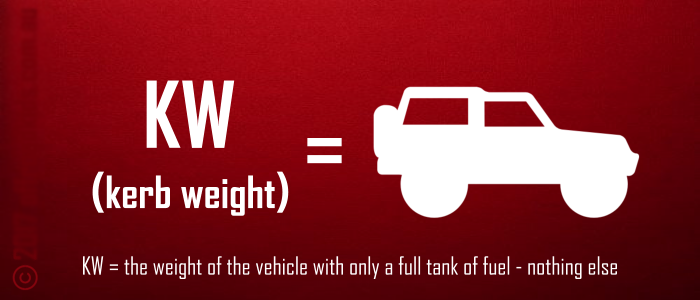
Maximum permissible weight of the vehicle including occupants, luggage, accessories such as roof racks or bull bar and the all-important tow-ball load/mass.
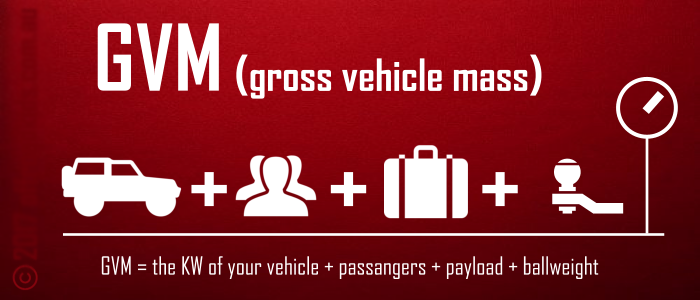
This refers to the maximum combined allowable weight of the trailer, tow vehicle, all loads, accessories and passengers.
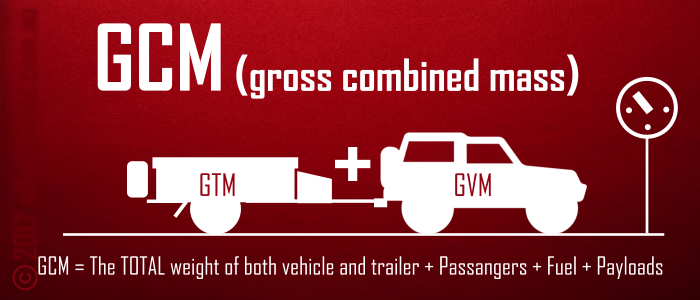
When hitched to your truck, this is the percentage of weight exerted on the vehicle’s tow ball from the camper trailer and roughly 10% of the vehicles maximum towing specification is what is legally allowed. TBM can quickly eat into your car’s carrying capacity as this amount of weight must be deducted from what you are putting into your vehicle, including the weight of your passengers because it is transferred from the trailer to the tug.
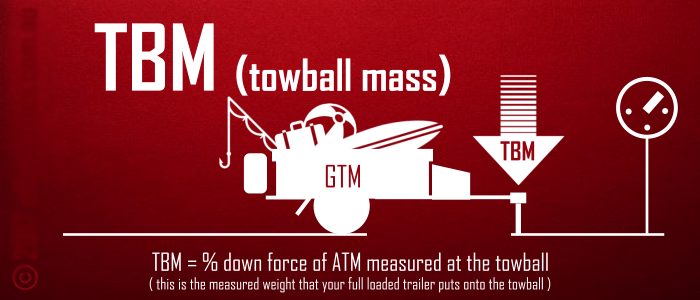
Payload is the vehicle’s carrying capacity and what you get when you subtract KW from GVM. This is the total weight of extras that you can pack into your vehicle and includes passengers, luggage, tow-ball load and non-standard accessories.
This is determined by the manufacturer and takes the design of the vehicle and factors such as the load on the rear axle and the capacity of the tyres to determine the effect a laden trailer will have on the vehicle’s stability. Vehicle manufacturers equate towing capacity to ATM.
ATM is the maximum combined weight of the trailer, plus it’s full load and fluids, when NOT coupled to a tow vehicle. This also includes the Tow Ball Mass (TBM).
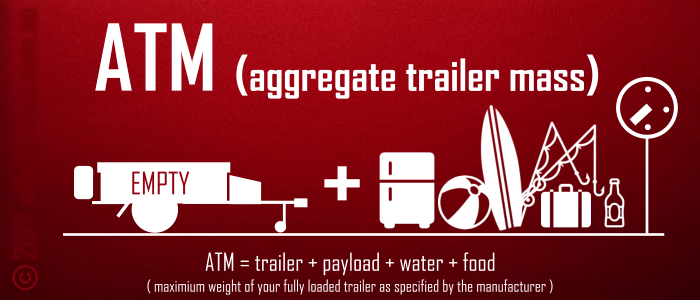
This weight rating can simply be thought of as ATM – TBM and refers to the weight of the loaded camper trailer when hitched to the tow vehicle.
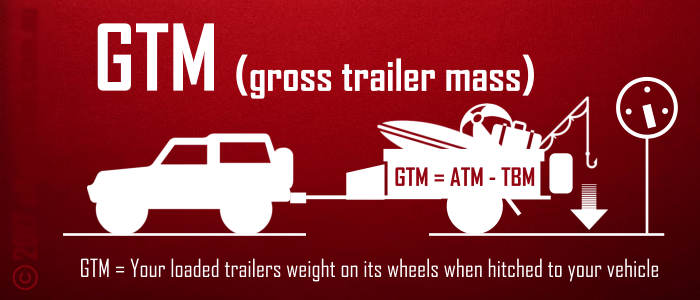
Tare weight is the net weight of the trailer as delivered from the manufacturer, empty and without after-market accessories, water in the tanks or gas in any included cylinders. It is visible on the camper trailer’s compliance plate.
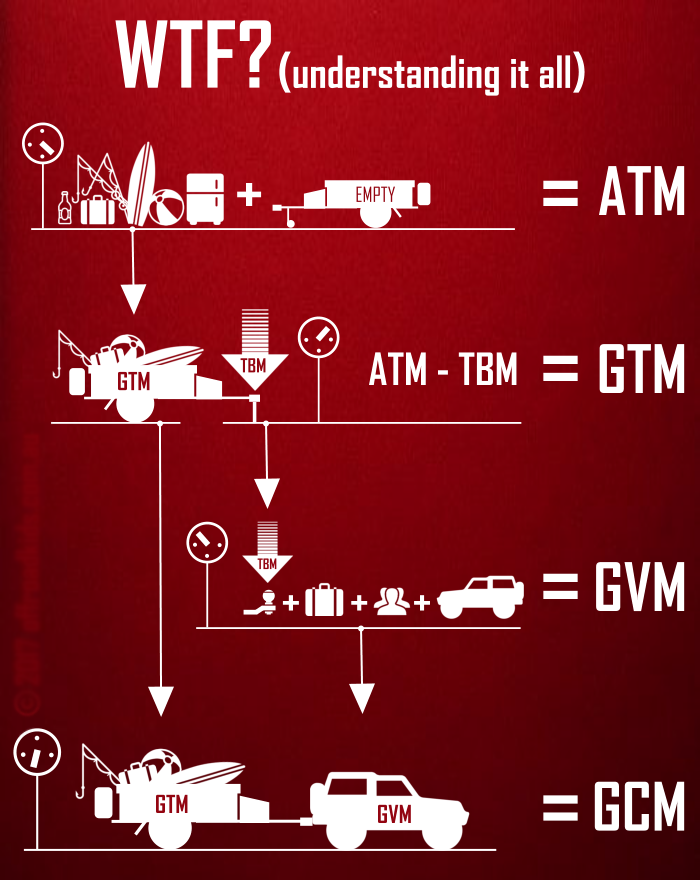
So, what does it all mean? Basically, you need to do a few simple calculations throughout the buying process to determine what size trailer you can safely tow with your specific vehicle. A simple equation to remember is GCM = GTM + GVM. But more importantly, to work out what you can tow and still leave room to take all your gear, including your family, use GCM – GVM = GTM. These figures are available from your vehicle manufacturer and will allow you to determine the heaviest weight you can tow, which may end up being 80% or less than the vehicle’s maximum specs to allow room for what you need to take.
Let’s look at a 200 Series LandCruiser as an example, one of the biggest 4WDs on the market. It has a kerb weight of around 2700kg and a GVM of approximately 3350kg. That leaves just 650kg (GVM – KW) of payload in your vehicle. Add a 2-tonne camper trailer on the back with an expected TBM of around 200kg and that figure reduces to 450kg. A family of four within an average weight range adds another 300kg and suddenly you’re down to 150kg you can pack in the back. At this point, something as minor as the addition of a long-range fuel tank or a fridge full of beer on board can easily tip you over your limit. Upgrades can be made to most four-wheel drives to increase your GVM, however this does nothing to your GCM, so you may be able to pack more into your vehicle as a result, but you’ll have to reduce your towing capacity to compensate.
Bottom line, go for a trailer with a large difference between the ATM and Tare Weight. This ensures you have plenty of wiggle room when it comes to choosing what you bring and what to leave at home. More importantly, you won’t run the risk of being over limit, which is not only illegal, but incredibly unsafe for you and your family. If you’re unsure, take your vehicle to a weigh bridge to get an updated Kerb weight that includes fluids, fuel, and any accessories you have added like a bull bar, roof racks, or long-range tanks. Then pack it with your usual gear, chuck the kids in and weigh it again to see how close you are to your GVM. With these updated specs, you’ll be able to cross-check against each model of camper trailer on your shortlist. Having accurate information specific to your vehicle will make selecting the right camper to tow behind it that much easier and you’ll be sure to scape in under the limit.
At Mars Campers we work hard to develop the best value for money camper trailers with a view of helping you create memorable experiences with your loved ones.
Did you find this information useful? If you found even one tiny nugget in this material to be useful, please do forward it to one of your friends. I am sure they will thank you for it. You can send it to them via email, Twitter, Facebook or post it on your own website.